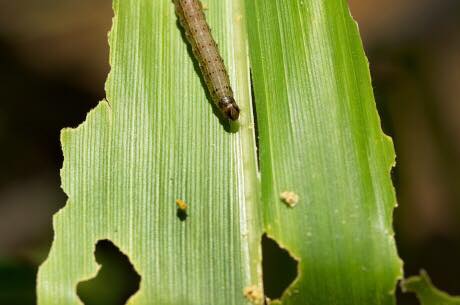Fall Armyworm Infestation Affects 11,000 Households in Lusaka
The Lusaka Province in Zambia is grappling with a significant agricultural challenge as Fall armyworms have ravaged over 6,000 hectares of maize fields, affecting approximately 11,000 households.
Pascal Chipasha, the Agriculture Coordinator for Lusaka Province, provided insights into the situation, stating that the infestation rate stands at 25 percent.
In an interview with ZANIS, Mr. Chipasha highlighted that the affected maize crops are currently at the vegetative stage, providing a window for intervention before potential widespread damage occurs.
The affected areas include six districts within Lusaka Province: Chilanga, Chongwe, Kafue, Luangwa, Lusaka, and Rufunsa. These districts are further divided into 26 blocks and 119 Agricultural Camps.
“All the 119 Agricultural Camps are affected by Fall armyworms, involving 11,761 farmers or households, with 6,254 hectares of maize fields affected,” Mr. Chipasha disclosed.
To combat the infestation, various interventions have been implemented, including mass training sessions for extension officers and farmers on pest control and management across all districts. Mr. Chipasha outlined a range of management methods being employed, such as biological, mechanical, cultural, and chemical controls, among others.
He emphasized the collaborative effort with the Ministry of Agriculture to provide support to affected farmers. This support includes the distribution of pheromone traps and chemicals to aid in pest control measures.
The agricultural community is urged to remain vigilant and promptly apply recommended control measures to mitigate further damage. Authorities are closely monitoring the situation and working to ensure a coordinated response to protect the livelihoods of the affected households and safeguard food security in the region.
Farmers are encouraged to report any signs of Fall armyworm infestation promptly, and additional resources and support are being mobilized to address the challenges posed by these destructive pests. The Ministry of Agriculture remains committed to assisting farmers in overcoming this threat and ensuring a successful farming season despite the current setbacks
Source: ZANIS



